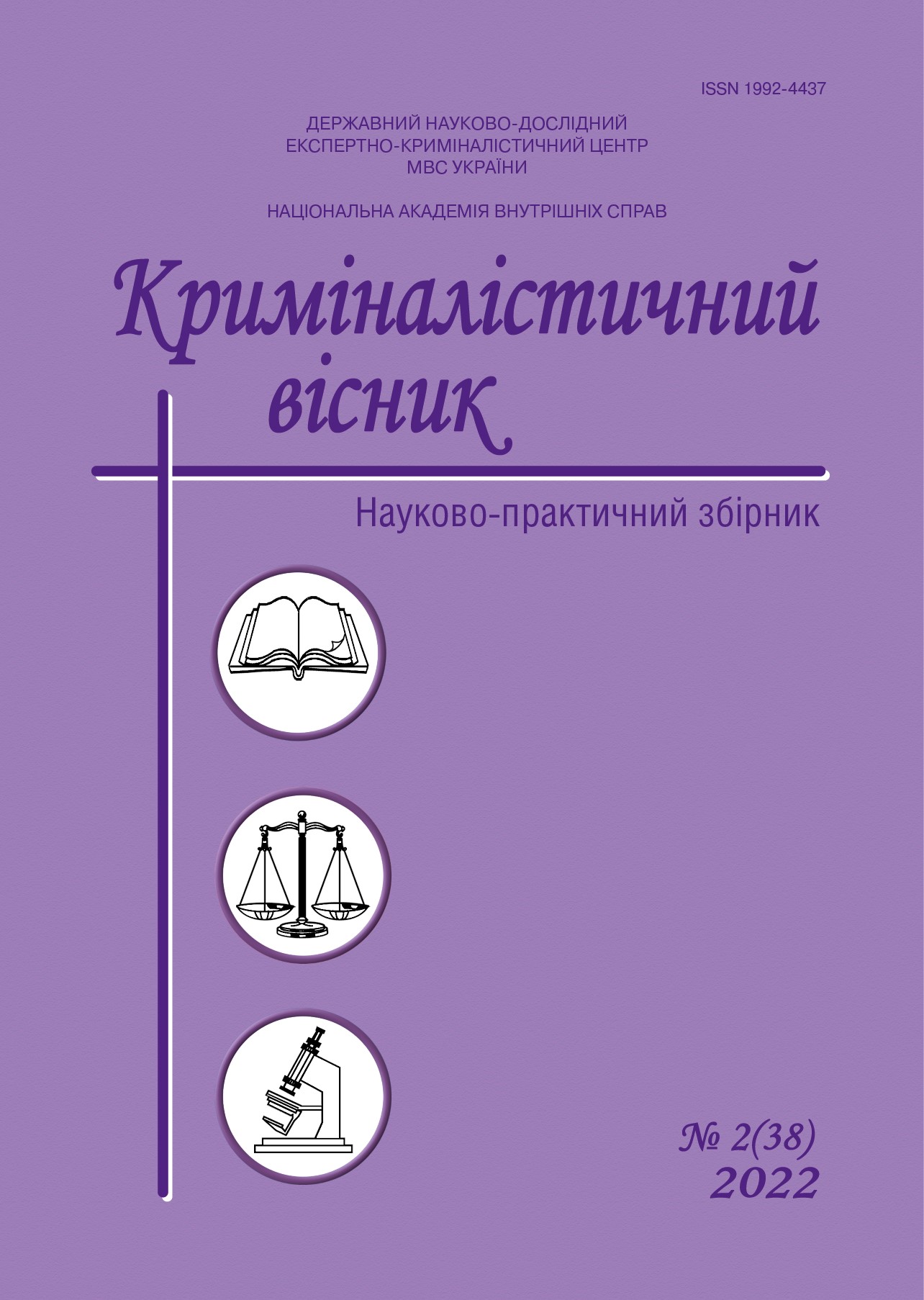INTERACTION OF THE PRE-TRIAL INVESTIGATION BODIES WITH THE MASS MEDIA DURING THE COLLECTION, INVESTIGATION AND USE OF EVIDENCE IN CRIMINAL PROCEEDINGS
DOI:
https://doi.org/10.37025/1992-4437/2022-38-2-48Keywords:
criminal proceedings, evidence, cooperation, mass media, journalistic investigation, tactical operationAbstract
The purpose of the article is to formulate, using a comprehensive approach, the procedural, organizational and
tactical principles of cooperation of pre-trial investigation bodies with mass media during the collection, examination
and use of evidence in criminal proceedings. Methodology. The methodological basis of the proposed research is
formed by a dialectical approach, a number of general scientific and a set of specific legal methods of scientific research:
formal-legal, formal-logical, system-structural, modeling method, activity and praxeological approaches, methods of
formal logic, etc. Scientific novelty. For the first time in Ukraine, as a result of a comprehensive study of procedural,
organizational and tactical principles, the experience of the cooperation of pre-trial investigation bodies with the mass
media within the framework of evidentiary activities in criminal proceedings has been summarized. Conclusions.
It was established that the main areas of cooperation of pre-trial investigation bodies with mass media during the
collection, examination and use of evidence in criminal proceedings are obtaining initial information about the signs
of a criminal offense from reports or publications of mass media, use of materials of journalistic investigations during
pre-trial investigation, distributing information about wanted persons and wanted things, distribution of requests for
the search of potential witnesses, as well as the organization and conduct of tactical operations involving mass media.
It is proven that publications and reports of the mass media can be appropriate sources of initial information about
the signs of a criminal offenses and grounds for starting a pre-trial investigation. Authorized persons can obtain such
information when familiarizing themselves with relevant publications (self-discovery) or as a result of journalists’
appeals. For initial confirmation, this information is entered into the unified register of pre-trial investigations, after
which it is checked during the investigation. Evidential value may be given to information published by mass media
as a result of journalistic investigations into criminal offenses. To use such data, it is necessary to establish contact
with the authors of the material, editors, participants and persons involved in the investigation (organizational
component) and obtain, verify and legalize the information collected by journalists (procedural-tactical component).
It was emphasized that the mass media is an effective means of disseminating information about wanted persons
and wanted things, requests to find eyewitnesses of criminally relevant events and other potential witnesses. In the
mentioned direction of cooperation, the mass media do not act as a source of forensically significant information,
but are only a tool for finding other sources of this information. It is recommended to organize such interaction by
establishing permanent working contacts with journalists. Media representatives can be involved in the organization
and implementation of tactical operations with the aim of legitimate psychological influence on the participants of
criminal proceedings, documenting manifestations of criminal illegal activity, etc. At the same time, it is promising
to develop practically oriented recommendations for law enforcement officers and journalists regarding effective
interaction during pretrial investigation of criminal offenses.



